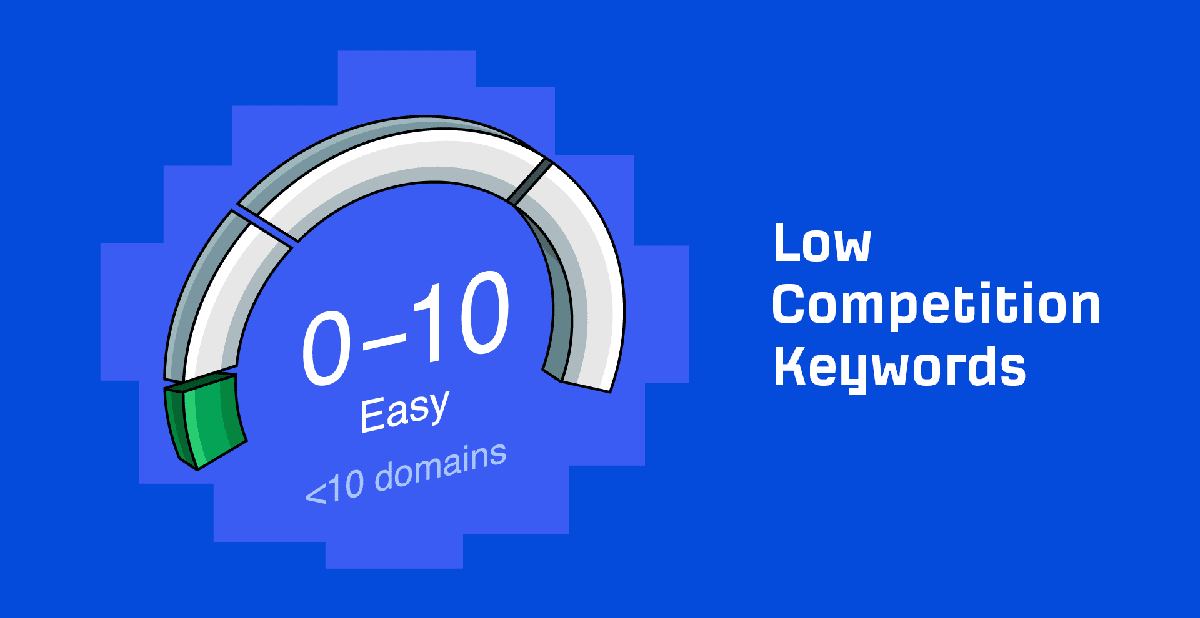If your website is new or can say old, but with fewer clicks, it is difficult to rank for a low competition keyword. But it does not mean that stop targeting low, competitive keywords. And you also have to pursue them in a very short term. These keywords can easily rank your blog or article with little link building. With its help, your blog or article both get quick traffic. Those who are experienced in SEO also need keyword research tools. Here, you will know how you can find those keywords that have less competition in SEO. And for this, you have to follow some simple steps that will also help rank your top-ranking content.
Steps for finding low competition keywords
Before starting your keyword research, you have to select a niche, just in case if you have not decided yet. Then you have to analyze a low authority blog or article, then check volume and searchers intent. By following these steps, you will easily find the best low competition keyword.
1. Start brainstorming topics
Then you have to think according to your audience that what they are looking for in Google. Think accordingly and note down all your ideas. You have to note down important ideas and themes. Do not go for phrases or exact lines, as it will only waste your time. When any key point came into your mind, please do not ignore it and write it down. At least note down 8 to 10 ideas. So, if you are selling laptops online, the key points that may help you will be:
- Laptop
- Hardware
- Ram
- MacBook
- Dell
- Lenovo
2. Using a keyword research tool expand your ideas
Now it is time to use the key points you have noted with the previous step’s help. Put those key points, or you can say phrases in a keyword research tool. And then get the report. You can use any keyword research tool to complete this step. After getting the report, a lot of keyword ideas will come in front of you, which will also include the phrases and key points that you have entered.
3. Filter those keywords that have low difficulty
Some keyword research tools have high difficulty scores. The difficulty for low competition keywords is known as KD (keyword density). KD is a numerical representation of how difficult it would be to rank your blog or article in the top search for Google search results. After that, filter keywords with a score of between 0 to 10 to get a low competition keyword. If you follow these steps, you will easily get 160000+ keywords using only 5 to 6 key points or phrases. For narrowing down the lists, adjust the monthly volume filter option to a minimum.
Google uses hundreds and thousands of ranking signals. So no SEO tool can detect all of them. The Third-party SEO tool will not detect the right keyword difficulty metric. Google never confirmed these SEO ranking factors. Keyword difficulty score varies from tool to tool. Because every SEO tool uses a unique formula, not every SEO tool can give the same results.
Not just this, you can also find low difficulty keywords from social media, google keyword planner, google instant, google searches, SERPs, YouTube, etc.
If you are using YouTube for finding low difficulty keywords, then read the comment section carefully. While doing this, keep in mind one thing that not all comments are for finding keywords. It is because some comments are commercially based, and some are fake. So, keep these small things in mind and do not base on only comments completely. The same method goes when you are searching these keywords on different social platforms.
Purpose of search with low difficulty keyword
It is possible that even if your article or blog has a low competition keyword, you will face difficulty. While making the audience’s content, problems will come and will create hurdles in ranking it in Google’s top 10 searches. So, choose those keywords that make sense and create the content that the audience is looking for. Some reasons that why you should use low difficulty are
- Low difficulty keywords are easy to rank than high competition keywords.
- If you use low difficulty keywords, then it will increase traffic with various clicks from the audience.
- In the future, these keywords also help in improving long-tail rankings.
- They provide more competitive keywords if you use them as a base.
Types of keywords
Keywords are of four types which are described below:
- Transactional keywords: You can use it if the audience is searching to buy anything. For example, buy, cheap, sell, etc.
- Navigational keywords: You can use it if the audience is looking for a specific website.
- Commercial investigation keyword: You can use it if the audience is searching for buying a specific product or a particular service. And the audience does not know which one to buy.
- Informational keyword: You can use it if the audience is looking to get information on a specific topic. For example, how, where, what, etc.
With the help of keywords explorer, you can easily get ideas related to keywords. To get a low competition keyword, here is an example of how you can do it. In Ahrefs, first type your seed keyword, enter it. Then you have to select the phrase that matches the report of your keyword ideas. After this step, you have to filter all low difficulty keywords using keyword difficulty (KD) filter in between 8 to 10. Add words (key points) like a laptop, buy, cheap to the option INCLUDE. Then you have to select ANY WORD option.
Conclusion
Creating an effective post by using keywords that have low competition can help in increasing the reach exponentially. To find low competition keywords, the above-explained steps can help a lot. If these steps are followed correctly, a professional-level SEO post can be created, allowing you to reach most of your targeted audience, giving you more traffic and more clients.



Stop Eggnogging Around: 4 Holiday Outreach Templates That Land Links
The Gift Guide Gold Rush: Your Backlink Strategy for High-DA Sites